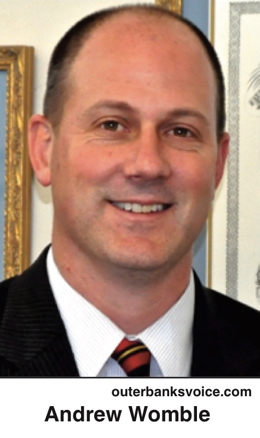Rascals case in brief
In the beginning, in 1989, more than 90 children at the Little Rascals Day Care Center in Edenton, North Carolina, accused a total of 20 adults with 429 instances of sexual abuse over a three-year period. It may have all begun with one parent’s complaint about punishment given her child.
Among the alleged perpetrators: the sheriff and mayor. But prosecutors would charge only Robin Byrum, Darlene Harris, Elizabeth “Betsy” Kelly, Robert “Bob” Kelly, Willard Scott Privott, Shelley Stone and Dawn Wilson – the Edenton 7.
Along with sodomy and beatings, allegations included a baby killed with a handgun, a child being hung upside down from a tree and being set on fire and countless other fantastic incidents involving spaceships, hot air balloons, pirate ships and trained sharks.
By the time prosecutors dropped the last charges in 1997, Little Rascals had become North Carolina’s longest and most costly criminal trial. Prosecutors kept defendants jailed in hopes at least one would turn against their supposed co-conspirators. Remarkably, none did. Another shameful record: Five defendants had to wait longer to face their accusers in court than anyone else in North Carolina history.
Between 1991 and 1997, Ofra Bikel produced three extraordinary episodes on the Little Rascals case for the PBS series “Frontline.” Although “Innocence Lost” did not deter prosecutors, it exposed their tactics and fostered nationwide skepticism and dismay.
With each passing year, the absurdity of the Little Rascals charges has become more obvious. But no admission of error has ever come from prosecutors, police, interviewers or parents. This site is devoted to the issues raised by this case.
On Facebook

Little Rascals Day Care Case
This Facebook page is an offshoot of littlerascalsdaycarecase.org, which addresses the wrongful prosecution of the Edenton Seven and other such victims.
Click for earlier Facebook posts archived on this site
Click to go to
Today’s random selection from the Little Rascals Day Care archives….
Prosecutors turned on by nonexistent porn tape
April 30, 2012
“Prosecutors are reviewing pornographic videotapes seized in Montana…. A man identified as Willard Scott Privott appears wearing a pirate costume in a boat full of children, according to affidavits….
“Several children have testified (during Bob Kelly’s trial) that they were taken on boat trips. One 6-year-old boy testified that the boat was driven by a pirate….
“Bill Hart, an assistant attorney general prosecuting the case, said State Bureau of Investigation agents and Edenton Police Officer Brenda Toppin are reviewing the confiscated material….”
– From an Associated Press dispatch, Nov. 30, 1991
Needless to say, the Montana tape seizure was quickly revealed as a fool’s errand.
But how excited the prosecutors must have been by the prospect of finally finding actual evidence to support their multiplicity of charges!
I e-mailed the Montana stories to Scott Privott, who said that until now he had only heard word-of-mouth accounts.
He remembered Dorene Anna Stearns and David Lee Etheridge as no more than acquaintances in Edenton. “As far as her tales of seeing me in a movie, I wonder how even the state could believe that…. If a movie did exist and she saw it in ’87, why didn’t she report it to authorities back then?”
District attorney to reexamine Little Rascals – or not?
 Jan. 11, 2015
Jan. 11, 2015
Before he turned back a challenge from Little Rascals prosecutor Nancy Lamb, incumbent District Attorney Andrew Womble had given me an inkling of hope he might consider revisiting the case.
This is from a letter I sent him on Sept. 11:
“In your Q&A with the Outer Banks Voice… you recalled ‘a pervasive mindset that the job of the district attorney was to prosecute all cases and to gain convictions. The Duke lacrosse case sort of changed that in my mind; the role of the district attorney is to seek justice.’
“Your thoughtful response leads me to ask how in retrospect you view the prosecution of Bob Kelly, Dawn Wilson and the rest of the Edenton Seven. Is Little Rascals a case you would have chosen to take to court, much less extend over eight years?
“Johnson Britt, Robeson County DA, recently disavowed the state’s allegations against two defendants cleared by DNA testing. In addition to the North Carolina Court of Appeals’ robust overturning of the verdicts against Kelly and Wilson, a quarter-century of medical and social science research has made ever more clear the innocence of the Edenton Seven….
“As district attorney, would you be willing to voice your own unofficial exoneration of the defendants in the First District’s most notorious prosecution?”
When Womble didn’t respond, I turned to Holly Koerber-Audette, his campaign consultant. Two weeks before the election she offered encouragement: “I am more than happy to talk to him about your request. I have followed the case and your excellent efforts for a long time now…. You have my word, I will discuss it with him.”
My several follow-up emails have gone unanswered. Whatever the DA’s response, I’d be glad to see it.
The ugly truth about ‘Nancy Lamb’s state of mind’
 March 14, 2012
March 14, 2012
“Prosecutor Nancy Lamb practiced a little ‘voodoo’ psychology by telling the jury that when Dawn Wilson held and played with her child during breaks in the trial, it wasn’t because she loved the child – it was all a show for the benefit of the jury.
“No psychologist could have accurately reported on the state of mind or the motives of Wilson when she played with her child. However, had a psychologist known that Wilson had been offered a plea bargain which included no jail time if she pointed the finger at the others, and had told prosecutors to ‘Find yourselves another patsy,’ that psychologist might have known something about Nancy Lamb’s state of mind when she made those statements.”
– From “Due Process Is Good Psychology,” article in
Michigan Lawyer Weekly by Michael G. Brock
Defending this smear, one of many, Lamb said Wilson was presenting herself as a good mother, and “We had to remove that mask.”
In 1995 the N.C. Court of Appeals overturned her conviction. And then of course the prosecutors rushed to apologize to Dawn Wilson for their disgraceful vilification.
Why have historians overlooked day-care mania?
 July 27, 2012
July 27, 2012
“It has always intrigued me that, in a culture that is relentlessly self-critical… the pre-school hysteria and witch-hunts of the 1980s and ’90s (have) attracted little, if any, notice among historians and social analysts.
“Which is odd: We moderns like to think that we are exempt from some of the baser instincts of human nature, but hysteria, mob rule, and spectral fears are still very much with us.
“Moreover, in this instance, the American judicial system failed systematically, blighting hundreds of lives: Many more genuinely innocent people went to prison, and for longer terms, than any Communist during the McCarthy era.”
– From “Remember McMartin” by Philip Terzian in the Weekly Standard (Nov. 11, 2011)






